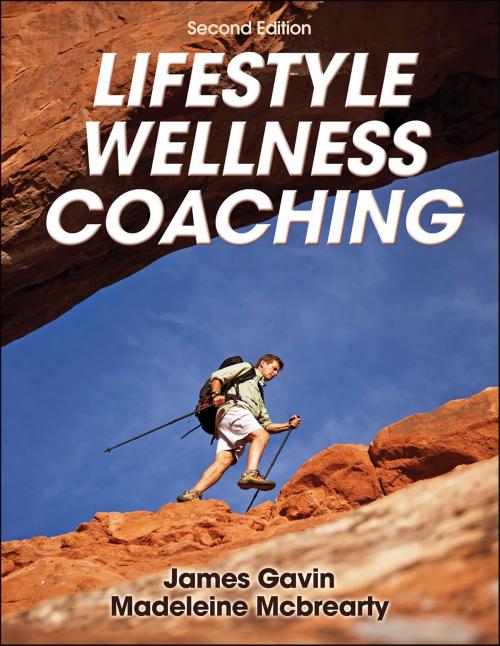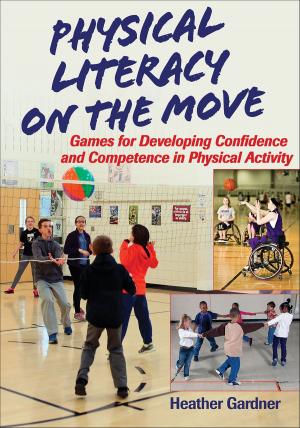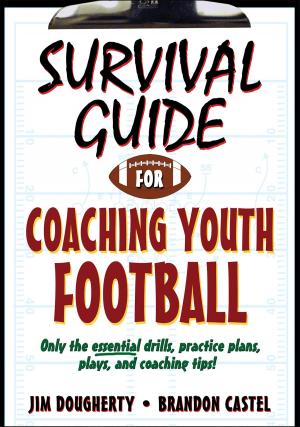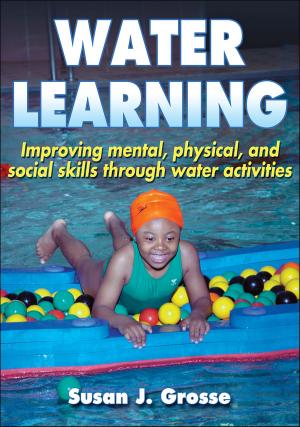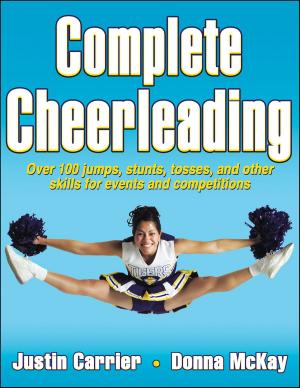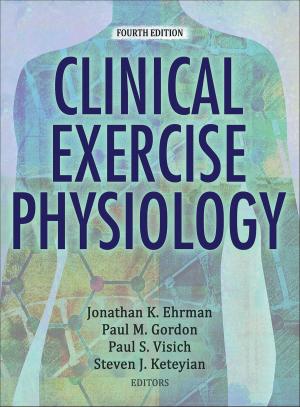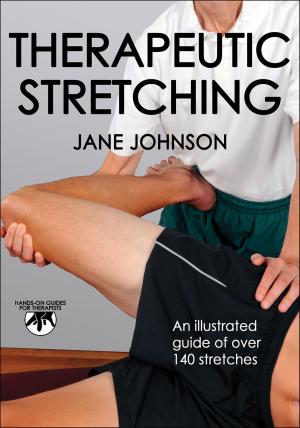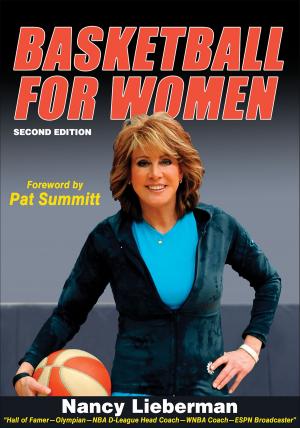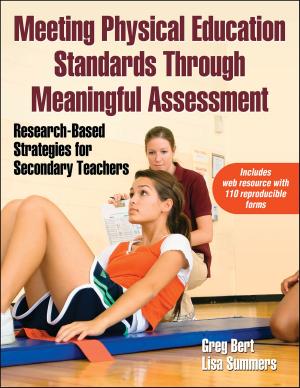| Author: | James Gavin, Madeleine Mcbrearty | ISBN: | 9781492581789 |
| Publisher: | Human Kinetics, Inc. | Publication: | April 18, 2013 |
| Imprint: | Human Kinetics, Inc. | Language: | English |
| Author: | James Gavin, Madeleine Mcbrearty |
| ISBN: | 9781492581789 |
| Publisher: | Human Kinetics, Inc. |
| Publication: | April 18, 2013 |
| Imprint: | Human Kinetics, Inc. |
| Language: | English |
Lifestyles have changed dramatically over the past quarter century, and along with these changes come exciting opportunities for health, wellness, and fitness professionals, including new career paths in the professional domain of health and wellness coaching. Centered on an evidence-based process for guiding change, Lifestyle Wellness Coaching, Second Edition, offers a systematic approach to helping clients achieve enduring changes in their personal health and wellness behaviors through a supportive and forward-moving coaching relationship.
Formerly titled Lifestyle Fitness Coaching, the second edition of Lifestyle Wellness Coaching has been thoroughly revised and updated to keep pace with the rapidly evolving field of lifestyle coaching. The text offers powerful methodologies for those who want to embrace lifestyle coaching as their primary profession as well as for those who intend to integrate a coaching approach into their work with clients. The text is complemented by discussions, case studies, reflective opportunities, and practical aids and engages readers through multiple approaches to learning:
• Dynamic coaching dialogues bring abstract concepts to life.
• Typical exchanges between coaches and clients are illustrated.
• The International Coach Federation’s 11 core competencies are thoroughly examined to prepare readers for certification in the profession of coaching.
• Sidebars provide practical guidance for enhanced understanding and prompt readers to personally experience the content.
Lifestyle Wellness Coaching, Second Edition, uses realistic coaching conversations to address issues such as the timing and types of questions to ask, how to provide feedback effectively, and how to facilitate robust action planning. Readers are presented with a broad overview of the field and detailed analysis of core ingredients to promote effective coaching relationships. The text includes essential structures for coaching conversations and practical considerations to help readers adapt materials to their unique career interests.
Lifestyle Wellness Coaching introduces readers to models that clearly identify clients’ progress through the stages of change. First, the text explores the popular transtheoretical model (TTM) of health-related behavior change and its delineation of six stages of clients’ readiness to change. Discussion of TTM includes strategies appropriate to clients in various stages of readiness to change. Lifestyle Wellness Coaching also presents the learning-through-change model (LCM), revealing the deep layers beneath each phase of client movement toward change. Following considerations of the stages and phases of change, readers are offered a critical map for coaching clients toward goal achievement. The authors’ unique flow model of coaching illustrates how professional coaches help clients navigate the sometimes turbulent events in attempting to change habitual patterns of behavior.
Lifestyle Wellness Coaching, Second Edition, details how professionals engage in well-designed communication strategies to motivate, guide, inform, and support clients’ processes toward personal change with a holistic approach. The text frames the boundaries of care and advice appropriate to coaching relationships. Some of the issues explored include the centrality of a trusting relationship, creating goals that are aligned with coaching processes, unblocking clients’ energy and discovering resources for change, and generating forward movement through the skillful use of the International Coach Federation’s 11 core competencies.
Whether you want to apply certain aspects of a coaching approach with your clients or move toward adding a professional coach certification to your résumé, Lifestyle Wellness Coaching, Second Edition, will serve you well. The text presents the necessary skills for professional development and offers an evidence-based methodology for supporting and advancing clients in change processes related to health, wellness, and fitness agendas.
Lifestyles have changed dramatically over the past quarter century, and along with these changes come exciting opportunities for health, wellness, and fitness professionals, including new career paths in the professional domain of health and wellness coaching. Centered on an evidence-based process for guiding change, Lifestyle Wellness Coaching, Second Edition, offers a systematic approach to helping clients achieve enduring changes in their personal health and wellness behaviors through a supportive and forward-moving coaching relationship.
Formerly titled Lifestyle Fitness Coaching, the second edition of Lifestyle Wellness Coaching has been thoroughly revised and updated to keep pace with the rapidly evolving field of lifestyle coaching. The text offers powerful methodologies for those who want to embrace lifestyle coaching as their primary profession as well as for those who intend to integrate a coaching approach into their work with clients. The text is complemented by discussions, case studies, reflective opportunities, and practical aids and engages readers through multiple approaches to learning:
• Dynamic coaching dialogues bring abstract concepts to life.
• Typical exchanges between coaches and clients are illustrated.
• The International Coach Federation’s 11 core competencies are thoroughly examined to prepare readers for certification in the profession of coaching.
• Sidebars provide practical guidance for enhanced understanding and prompt readers to personally experience the content.
Lifestyle Wellness Coaching, Second Edition, uses realistic coaching conversations to address issues such as the timing and types of questions to ask, how to provide feedback effectively, and how to facilitate robust action planning. Readers are presented with a broad overview of the field and detailed analysis of core ingredients to promote effective coaching relationships. The text includes essential structures for coaching conversations and practical considerations to help readers adapt materials to their unique career interests.
Lifestyle Wellness Coaching introduces readers to models that clearly identify clients’ progress through the stages of change. First, the text explores the popular transtheoretical model (TTM) of health-related behavior change and its delineation of six stages of clients’ readiness to change. Discussion of TTM includes strategies appropriate to clients in various stages of readiness to change. Lifestyle Wellness Coaching also presents the learning-through-change model (LCM), revealing the deep layers beneath each phase of client movement toward change. Following considerations of the stages and phases of change, readers are offered a critical map for coaching clients toward goal achievement. The authors’ unique flow model of coaching illustrates how professional coaches help clients navigate the sometimes turbulent events in attempting to change habitual patterns of behavior.
Lifestyle Wellness Coaching, Second Edition, details how professionals engage in well-designed communication strategies to motivate, guide, inform, and support clients’ processes toward personal change with a holistic approach. The text frames the boundaries of care and advice appropriate to coaching relationships. Some of the issues explored include the centrality of a trusting relationship, creating goals that are aligned with coaching processes, unblocking clients’ energy and discovering resources for change, and generating forward movement through the skillful use of the International Coach Federation’s 11 core competencies.
Whether you want to apply certain aspects of a coaching approach with your clients or move toward adding a professional coach certification to your résumé, Lifestyle Wellness Coaching, Second Edition, will serve you well. The text presents the necessary skills for professional development and offers an evidence-based methodology for supporting and advancing clients in change processes related to health, wellness, and fitness agendas.
